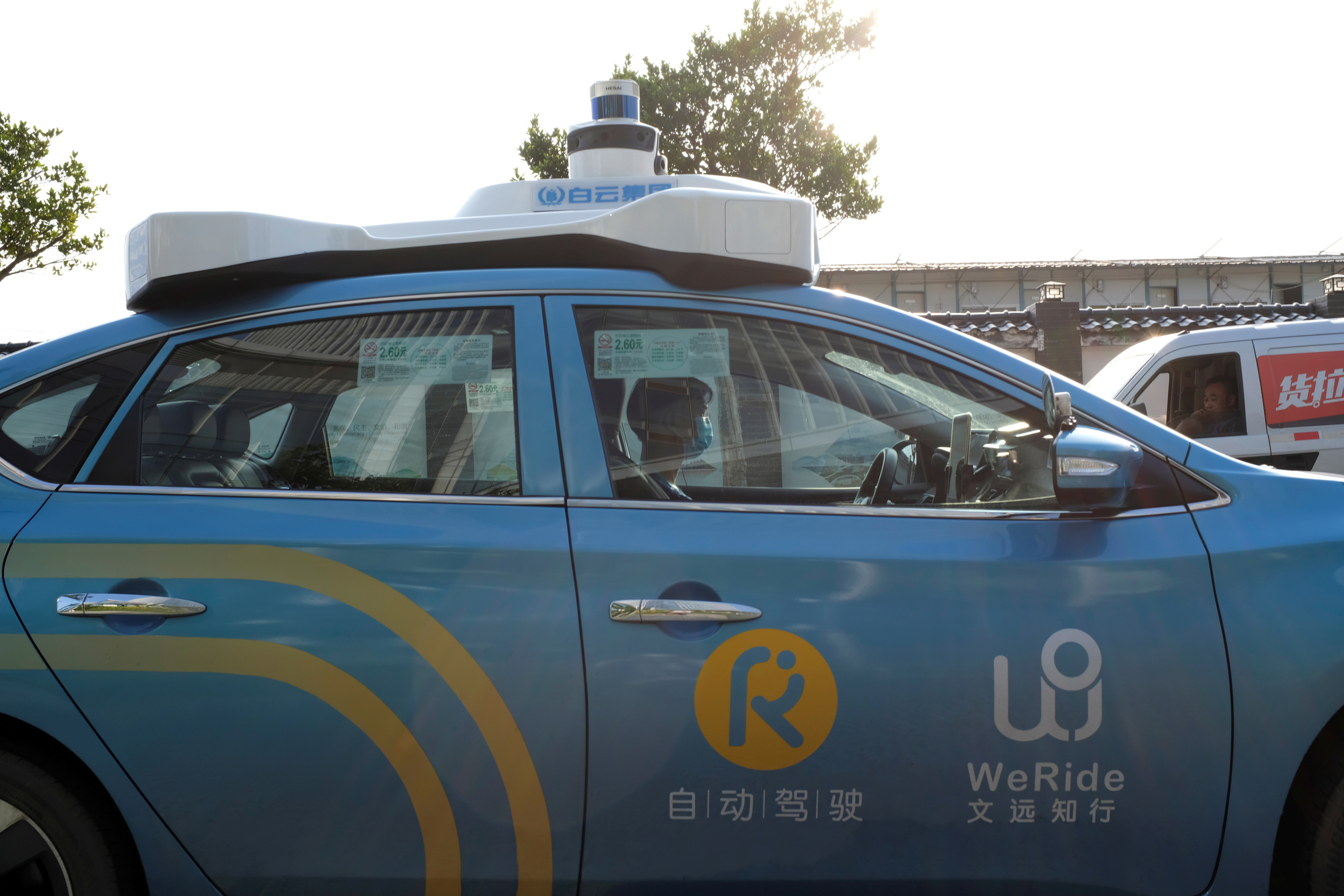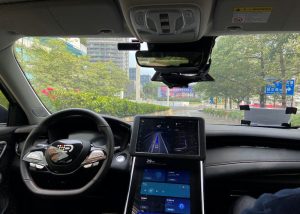(ATF) Beyond trendy names like Tesla, Alphabet’s Google and more recently Apple from the US, Chinese companies working in auto tech are also heating up the autonomous vehicle (AV) race with autonomous driving startups leading the charge.
Guangzhou-based autonomous driving startup WeRide said on Wednesday it has closed its Series B1 round of fundraising, bagging $200 million from bus maker Yutong Group, China’s largest commercial bus manufacturer.
WeRide, which is testing self-driving passenger vehicles in California and China’s southern city of Guangzhou, did not disclose its valuation but the company said in a statement that it would develop autonomous minibuses, city buses and other commercial vehicles.
“WeRide and Yutong Group will engage in extensive cooperation in key domains such as research and development, vehicle platforms and mobility services,” WeRide CEO and co-founder Tony Han said.
WeRide, which has been running a robotaxi fleet in Guangzhou for more than one year, said Yutong’s investment was the “largest-ever investment in autonomous driving made by a leading Chinese automaker.”
WeRide is pursuing a level 4 autonomous standard, in which the vehicle can handle all aspects of driving in most circumstances with no human intervention.
Billions pouring into AV
The move comes as autonomous driving companies expand their product lineups and traditional vehicle makers are pumping money into autonomous driving-related companies, which have attracted billions of dollars of investment globally.
US-based management consultants, AlixPartners say the AV market is projected to reach nearly $32 billion by 2025 from an estimated $24 billion in 2020, with some $75 billion expected to be invested in the technology between 2019 and 2023.
The primary reason for the growth is driven by the increasing number of mandates from governments to control vehicle emissions, vehicle weight reduction and the demand for premium cars globally.
However, a major factor also restraining the growth of the drive-by-wire market is the high incremental cost, risk of failure in electronics, and lack of public acceptance.
This is why some industry insiders say it will take time for the public to fully trust autonomous vehicles.
Still, China aims to have vehicles with partial self-driving technology accounting for 50% of all new-auto sales by 2025, double its previous goal, as the country encourages local companies to pull ahead of the US in the field.
And, new vehicles with “level 2” or “level 3” automation are targeted to make up 70% of sales by 2030. Level 2 assists the driver with steering, acceleration and braking, while level 3 means vehicles drive themselves under certain conditions such as on highways.
Toyota China tie-up
Earlier in the year, WeRide rival Pony.ai raised $400 million from Japanese car giant Toyota Motors to strengthen its ties with the Chinese provider of driverless-car systems.
The investment extends the companies’ partnership formed last year and pushes Pony.ai’s valuation to more than $3 billion, the startup said in a statement. The pact enables a “deeper integration” of Pony.ai’s technology with Toyota’s vehicles.
China’s internet giant Baidu has also worked with FAW Group, as well as Sweden’s Volvo Cars and US carmaker Ford Motor to develop self-driving car models for China.
Guangzhou-based WeRide, which is also backed by the Nissan-Renault-Mitsubishi alliance, said it had developed a self-driving minibus with Yutong, which does not have a steering wheel.
The bus is bigger than Zoox’s recently-launched 4-seat vehicle, which also does not have a steering wheel. WeRide’s model can carry ten people and run at up to 40 kilometres per hour on open roads.
China the epicentre for AV
AV is of the key sectors in the fast-growing field of artificial intelligence, where both China and the US are seeking supremacy.
But a recent AlixPartners survey has revealed that China is well-positioned to be the epicenter of AV development given Chinese consumer sentiment about AVs.
Consumers in China, according to the survey, are most willing (84%) to give up car ownership for AV ride-hailing in robotaxis – much more than all other countries surveyed.
Chinese consumers are also more confident (58%) and have a higher willingness to pay for AVs, though the premium they’re willing to pay for AVs is lower.
Autonomous driving is also an important feature of China’s 14th five-year plan, which aims to drive modernization through innovation and technological advancements,
For instance, China’s transport ministry recently backed the technology as an essential part in building a nationwide smart transport system and said it encourages cities and companies to roll out pilot programmes including robotaxis and V2X (vehicle-to-everything) systems.
With reporting by Reuters
























